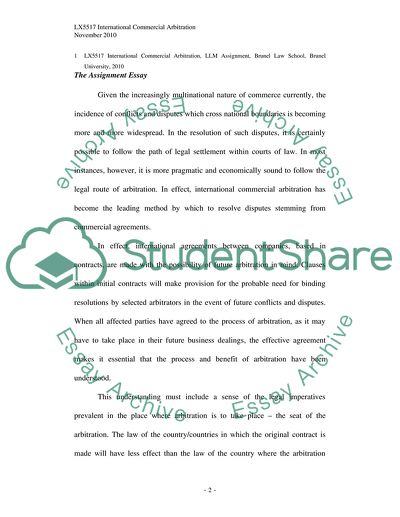Cite this document
(Does the Arbitration Agreement Have Effect before Local Legal Agreemen Assignment, n.d.)
Does the Arbitration Agreement Have Effect before Local Legal Agreemen Assignment. Retrieved from https://studentshare.org/law/1747613-international-commercial-arbitration-assignment
Does the Arbitration Agreement Have Effect before Local Legal Agreemen Assignment. Retrieved from https://studentshare.org/law/1747613-international-commercial-arbitration-assignment
(Does the Arbitration Agreement Have Effect before Local Legal Agreemen Assignment)
Does the Arbitration Agreement Have Effect before Local Legal Agreemen Assignment. https://studentshare.org/law/1747613-international-commercial-arbitration-assignment.
Does the Arbitration Agreement Have Effect before Local Legal Agreemen Assignment. https://studentshare.org/law/1747613-international-commercial-arbitration-assignment.
“Does the Arbitration Agreement Have Effect before Local Legal Agreemen Assignment”, n.d. https://studentshare.org/law/1747613-international-commercial-arbitration-assignment.


